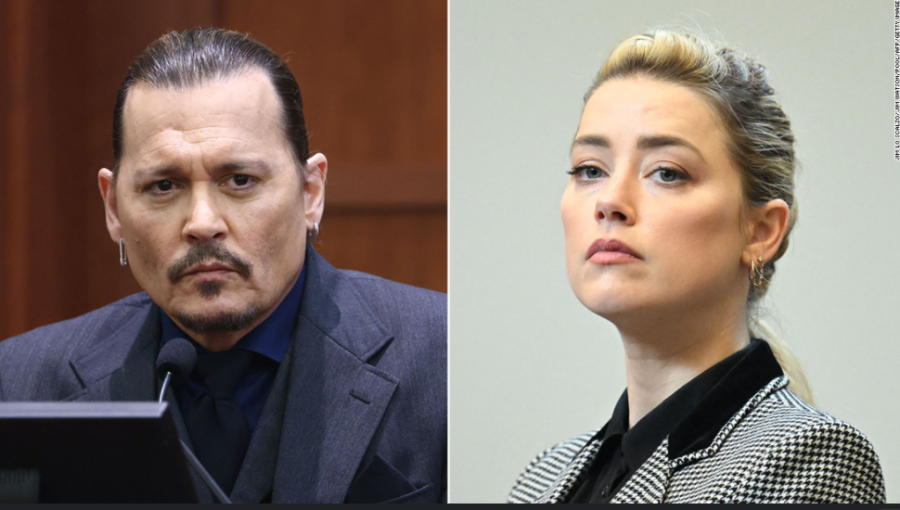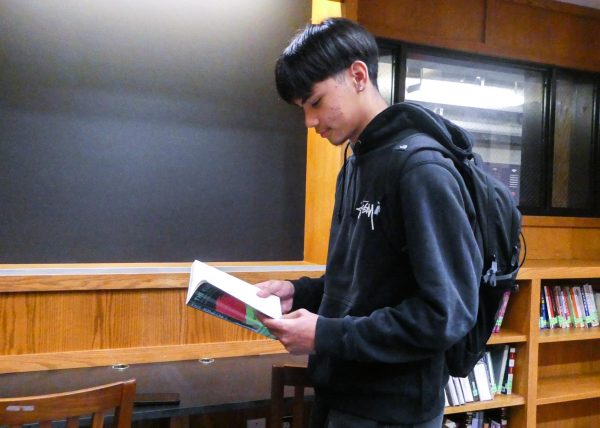The Depp-Heard Trial: Not a Mock Trial
Snippets of the Johnny Depp-Amber Heard trial have been circulating all over social media in the form of funny memes, TikTok compilations and YouTube reaction videos. This ridiculing and mocking has warped the trial into mainstream media as the latest form of entertainment. Except, this trial should be far from entertaining. It is a case of domestic violence. It is a coming-out story of an abusive relationship. Most of all, it involves the trauma, the personal experiences and the lives of two people that viewers will never be able to fully grasp. The public has been consuming and intervening in the Depp-Heard trial in an inappropriate way, setting a precedent of how public interference can undermine the severity of sensitive situations.
In 2018, two years after their divorce, Heard published an op-ed in The Washington Post, describing herself as a “public figure representing domestic abuse.” While Depp was not listed by name in the op-ed, he believed that it had negatively impacted his acting career and consequently sued her for 50 million dollars for defamation. He also claims that he was the true victim of domestic abuse, not Heard, who maintains that she is the victim. In response, Heard has counter-sued Depp for 100 million dollars, asserting that all her advances were, in fact, in self-defense.
It is important to first acknowledge that publicizing the trial was not easy for either party. The case has placed Depp and Heard in an extremely vulnerable situation where both must testify and relive some of the ugliest parts of their relationship all whilst knowing that the public may view them in a different light because of the trial. And the public, insensitive to their vulnerability, has trivialized it. Viewers have been making profit off of merchandise featuring aspects of the trial, creating reaction videos on Twitch streams and spreading insensitive rhetoric while defending Depp or Heard. The trial’s media circulation is reflective of the toxic culture of the media in its shared lack of empathy.
Boston Latin School English teacher Ms. Sophia Campot comments, “The trial itself has become akin to a reality TV show, in my opinion, people are treating it like something that is produced solely for their entertainment.”
Viewers, additionally, are choosing sides in the trial like it is a competition or a popularity test. Toxic relationships, however, are not black-and-white and should not be treated as such. In fact, its oversimplification promotes the notion that such relationships are as simple as who is right and wrong — an unrealistic expectation that discredits the realities of abusive relationships.
On another note, the way in which viewers treat Heard is a problem in itself. Sam Chen (III) says, “The public is definitely in support of Depp in this trial and quite (sometimes and sometimes not) humorously shaming Amber Heard.” This “humorous shaming” has paved the way for misogyny to go unnoticed, hidden under the facade of trial rhetoric and Depp’s large public support. The public has completely disregarded Heard’s story in favor of Depp’s, and all reactions to her stance have been overwhelmingly negative. Ms. Campot continues, “It is, in my opinion, more permissible to hate a woman, to view her as the apex of evil and to make generalizations about all women, when one operates in a patriarchal society.”
According to Vice, justice advocate Farrah Khan suggests that this behavior “has the potential to scare victims and survivors of abuse from speaking out because they fear backlash similar to what Heard is getting right now.” Heard’s outlandish treatment has perpetuated the stigma that female survivors of abuse are exaggerating and lying about their experiences.
Celebrities are people, too. Depp and Heard’s relationship was not simple, and the media has made it easy to confine the situation in the narrative that Depp is an “all-righteous” man and that Heard is the villain in the case. But it’s more complicated than that.
Ms. Campot concludes, “I really hope that, no matter what happens with this case, this trial helps show the complexities of abusive relationships.”
Despite all of this, its publicization has been beneficial in sparking conversations surrounding domestic violence, and has shed light on an important topic that is often disregarded as a personal issue. Depp’s lawsuit and legal win is a stepping stone for male survivors of abuse, who are often burdened to speak up by the traditional belief that men are always the perpetrators in abusive relationships. The verdict of the trial in favor of Depp will encourage more male survivors to come forward with their experiences, in turn challenging gender stereotypes and moving toward a more accepting world.







